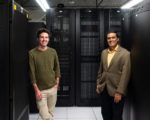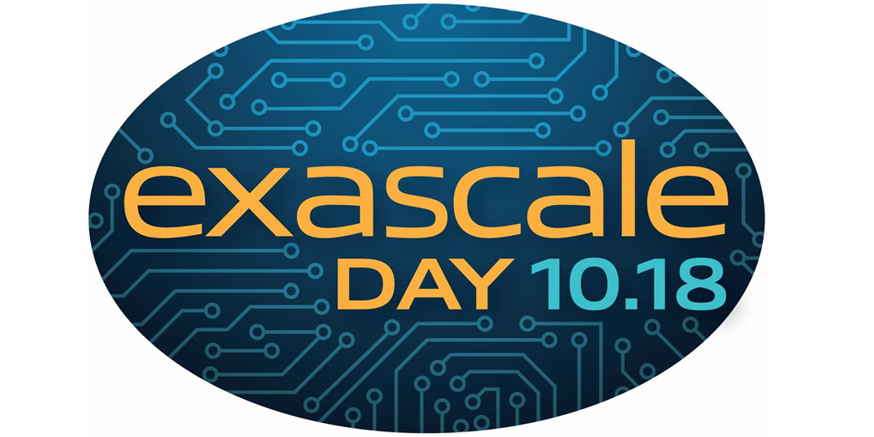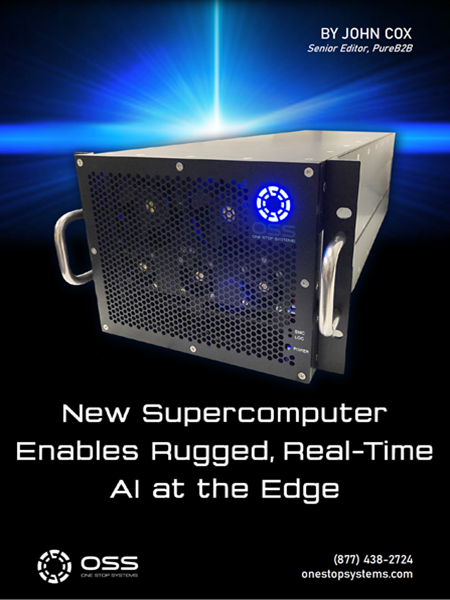Sept. 6, 2022 — Today, the U.S. Department of Energy (DOE) announced $35 million for three joint projects in Nuclear Physics (NP) and Advanced Scientific Computing Research (ASCR) via a partnership program of Scientific Discovery through Advanced Computing (SciDAC). The NP SciDAC program brings together experts in nuclear physics research with experts in software development, applied […]
DOE: $35M for Scientific Discovery through Advanced Computing Partnership in Nuclear Physics
Advanced Scientific Computing Advisory Committee (ASCAC) Meeting July 21-22
July 21, 2022 — The next meeting of the Advanced Scientific Computing Advisory Committee (ASCAC), the federal advisory committee for the U.S. Department of Energy Office of Science’s program on Advanced Scientific Computing Research (ASCR), will take place on Thursday, July 21, and Friday, July 22, 2022, from 10:00 AM – 4:00 PM EDT (ending at […]
With 4X Boost, Cumulus-2 HPC Cluster Goes into Climate Research Action at Oak Ridge Atmospheric Facility
Oak Ridge, TN — Oak Ridge National Laboratory has launched a new, more powerful computer system to support climate data research conducted by the DOE’s Atmospheric Radiation Measurement (ARM) user facility. Procured and managed by the National Center for Computational Sciences (NCCS) at ORNL, the Cumulus-2 cluster is a Dell HPC system with 16,384 processing cores […]
DOE Announces $18.3M for Chemical Sciences Simulation and Modeling Research
July 8, 2022 — Today, the U.S. Department of Energy (DOE) announced $18.3 million in funding for eight research projects to advance the development of sophisticated modeling and simulation software for the chemical sciences. Funding totals approximately $6 million in Fiscal Year 2022 dollars for projects of up to three years in duration, with outyear funding […]
AMD Expands HPC Fund to Aid Researchers
SANTA CLARA, Calif. — June 1, 2022 — AMD today announced the expansion of its High Performance Compute (HPC) Fund with the addition of 7 petaflops of computing power to assist global researchers working to solve the most demanding challenges. AMD also announced that the AMD HPC Fund will now integrate Xilinx Heterogeneous Accelerated Compute Clusters (HACC) program, providing […]
DOE’s Office of Science Graduate Student Research Program Selects 80 U.S. Graduate Students
May 3, 2022 — The Department of Energy’s (DOE’s) Office of Science has selected 80 graduate students representing 27 states for the Office of Science Graduate Student Research (SCGSR) program’s 2021 Solicitation 2 cycle. Through world-class training and access to state-of-the-art facilities and resources at DOE national laboratories, SCGSR prepares graduate students to enter jobs […]
Proposals Open to Research Community for ALCF AI Testbed’s Cerebras and SambaNova Systems
Proposals are now being accepted by the Argonne Leadership Computing Facility for access to its AI Testbed, a collection of advanced artificial intelligence accelerators available for science. Researchers interested in using the AI Testbed’s Cerebras CS-2 and SambaNova DataScale systems can submit project proposals via the ALCF’s Director’s Discretionary program. Access to additional testbed resources, including Graphcore, Groq, and Habana accelerators, will be […]
Dell Technologies Interview: Univ. of Liverpool’s Hybrid HPC Strategy Boosts Scientific Computing with a Burst
[SPONSORED CONTENT] In a recent Dell Technologies interview on this site, we talkied about HPC-as-a-Service with R Systems, provider HPC-on-demand resources and technical expertise in partnership with Dell HPC Cloud Services. Now, in this interview, we have a variant within this HPC segment: bursting to the cloud when an on-premises cluster needs a resource boost. Faced with this situation was the University of Liverpool’s Advanced Research Computing within the Computer Services Department. The group, led by Cliff Addison, uses the Dell-based “Barkla” Linux cluster for its scientific computing needs. For times when the group’s needs overtax Barkla, the university worked with Dell Technologies and UK-based Alces Flight, which designs and builds HPC environments for scientists, engineers and researchers. UK-based Alces and Dell engineered a burst capability to Amazon Web Services, placing priority on creating a seamless environment easily adopted and accessed by Advanced Research Computing scientists.
Faced with this need was the University of Liverpool’s Advanced Research Computing within the University’s Computer Services Department. The group, led by Cliff Addison, uses the Dell-based “Barkla” Linux cluster for its scientific computing needs. For times when the group’s needs overtax Barkla’s resources, the university worked with Dell Technologies and UK-based Alces Flight, which designs and builds HPC environments for scientists, engineers and researchers. UK-based Alces and Dell engineered a burst capability to Amazon Web Services, placing priority on creating a seamless environment easily adopted and accessed by Advanced Research Computing scientists….
DOE: $40M Funding Opportunity for Mathematical Multifaceted Capability Centers
April 15, 2022 — Today, the U.S. Department of Energy (DOE) announced $40 million for fundamental mathematics research on problems of interest to the DOE that require the integration of multiple mathematical topic areas. The Mathematical Multifaceted Integrated Capability Centers (MMICCs) supported by this funding opportunity will enable five-year, multi-institutional collaborations for cross-cutting mathematics. Collaborative applications […]
DOE Announces $1M for Research on Medical Isotopes
April 11, 2022 — Today, the U.S. Department of Energy (DOE) announced $1 million in funding for three awards to advance research and development (R&D) to translate newly developed radioisotopes into evaluation for potential use in preclinical and clinical trials. This funding is part of a key federal program that produces critical isotopes otherwise unavailable or in […]








